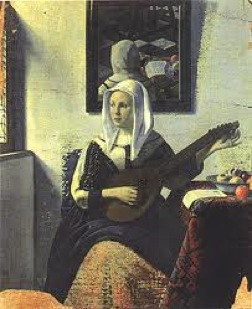 Post #10 – Women’s Memoirs, Writing and Healing – Kendra Bonnett and Matilda Butler
Post #10 – Women’s Memoirs, Writing and Healing – Kendra Bonnett and Matilda Butler
Music and Memoir
Pamela Jane Bell
 Music touches us in ways that are beyond language, literature, or even poetry. When I hear Stephen Foster’s “Hard Times Come Again No More,” or listen to Jay Unger’s haunting “Ashokan Farewell,” the chords, tonal shifts, and harmonies remind me as nothing else can why I am writing my memoir (which unfolds in the ethereally lovely Ashokan reservoir in the heart of the Catskill Mountains.) A violin, piano, or human voice – each instrument elicits different memories, longings, and dreams.
Music touches us in ways that are beyond language, literature, or even poetry. When I hear Stephen Foster’s “Hard Times Come Again No More,” or listen to Jay Unger’s haunting “Ashokan Farewell,” the chords, tonal shifts, and harmonies remind me as nothing else can why I am writing my memoir (which unfolds in the ethereally lovely Ashokan reservoir in the heart of the Catskill Mountains.) A violin, piano, or human voice – each instrument elicits different memories, longings, and dreams.
I have to admit I have a secret habit of going on-line and buying music from iTunes or Amazon when I’m working on my memoir. I organize the music into folders on my computer that correspond to different eras in my story. This is writing and healing at its most pleasurable.
When I was sixteen, in 1964, I discovered the blues. I spent a lot of time in my room playing my second-hand Gibson guitar, picking up riffs from the recordings of Leadbelly, Blind Lemon Jefferson, and Mississippi John Hurt. The blues spoke of a life I hungered for, one filled with authenticity, anguish and risk, far from my middle-class high school and the sedate Midwestern suburbs where we lived.
When the celebrated blind blues musician, Reverend Gary Davis, played at a folk café in downtown Detroit, my friend Debbie and I visited him and his wife, Annie, in a run-down hotel room over the café. We were giddy with excitement and a heady sense of triumph at finding ourselves in the same room with a great blues legend. Sitting on the sagging double bed, the Reverend taught us to play his famous “Candy Man.”
“This song came out in nineteen-five, way back yonder,” he began, “I was nothing but a boy.”
 Whenever I want to remember what that moment felt like, I play Reverend Gary Davis’ “Candy Man” and let the music carry me back to the seedy hotel room over the café. Once again I feel the sense of exhilaration at finding myself in the same room with a great blues musician and escaping the suburbs, all in a single afternoon.
Whenever I want to remember what that moment felt like, I play Reverend Gary Davis’ “Candy Man” and let the music carry me back to the seedy hotel room over the café. Once again I feel the sense of exhilaration at finding myself in the same room with a great blues musician and escaping the suburbs, all in a single afternoon.
Now it is 1966, in my memoir, and I’m driving across the desert with college friends, watching the lights of Phoenix flicker on in the dusk like stars and listening to Percy Sledge sing “When A Man Loves a Woman.” That song, which was played continuously on the radio as we drove east across Route 66, will forever be a part of those times for me. It brings back all that was unspoken, yet deeply-felt — the friendships, wanderlust, longing and heartbreak expressed in the music flowing out over lonely wide-open spaces of the desert.
Other times, when I want to capture the other-worldly sense of time folding over on itself, I play the score from the movie “Peggy Sue Got Married.” The music evokes scenes from the film in which Peggy Sue, played by Kathleen Turner, goes back in time to high school, with her adult sensibilities and wisdom. When I’m listening to this music and my teenage daughter walks in through the door, the mysterious chords – questioning, exploring, returning – remind me that this is not just another ordinary day but a rare and fleeting moment, already receding into the past. It is a moment I am already looking back on. That is the magic and metaphor of memoir, the ability to live simultaneously in two worlds – past and present.
Then there’s the Shirelles. I associate their hit single, “This is Dedicated to the One I Love” with standing in front of the mirror, rolling my hair in prickly brush rollers fastened with plastic picks that made dents in my forehead. The song brings back the longing to be popular, to be desirable, to make love under the stars to the cute boy I passed in the junior high school hallway every day after English class. One day soon, the music seems to promise, all these wishes will come true.
Music touches chords in us – hidden chords, dormant chords, divine chords. It touches old wounds, hope, joy, and love – the whole breadth of human experience.
And isn’t that what we want to do with our words?
MEMOIR WRITING PROMPT:
Think of a time in your life that is associated with a song or a piece of music. Find a way to listen to the music as you write. Write for fifteen minutes, allowing yourself to express the memories or feelings the music evokes in you. Let the music take you where it wants to go. Then, if you choose, share your experience of writing and healing to music with us. You can either leave a note in the Comments field below or send an email with your experience to Matilda at womensmemoirs dot com.

















